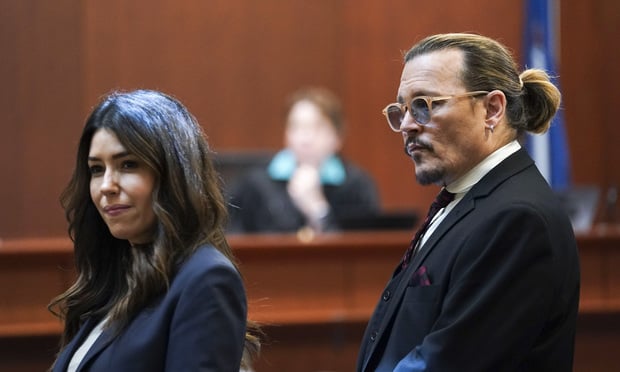 Actor Johnny Depp stands next to his lawyer, Camille Vasquez, after a break in the courtroom at the Fairfax County Circuit Courthouse in Fairfax, Va., Wednesday, May 18, 2022. (Credit: Kevin Lamarque/Pool via AP)
Actor Johnny Depp stands next to his lawyer, Camille Vasquez, after a break in the courtroom at the Fairfax County Circuit Courthouse in Fairfax, Va., Wednesday, May 18, 2022. (Credit: Kevin Lamarque/Pool via AP)
Recommended For You
Want to continue reading?
Become a Free PropertyCasualty360 Digital Reader
Your access to unlimited PropertyCasualty360 content isn’t changing.
Once you are an ALM digital member, you’ll receive:
- Breaking insurance news and analysis, on-site and via our newsletters and custom alerts
- Weekly Insurance Speak podcast featuring exclusive interviews with industry leaders
- Educational webcasts, white papers, and ebooks from industry thought leaders
- Critical converage of the employee benefits and financial advisory markets on our other ALM sites, BenefitsPRO and ThinkAdvisor
Already have an account? Sign In Now
© 2025 ALM Global, LLC, All Rights Reserved. Request academic re-use from www.copyright.com. All other uses, submit a request to [email protected]. For more information visit Asset & Logo Licensing.








